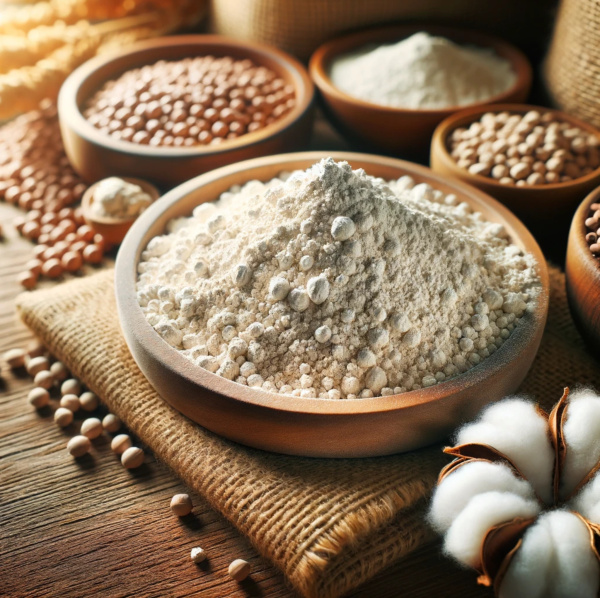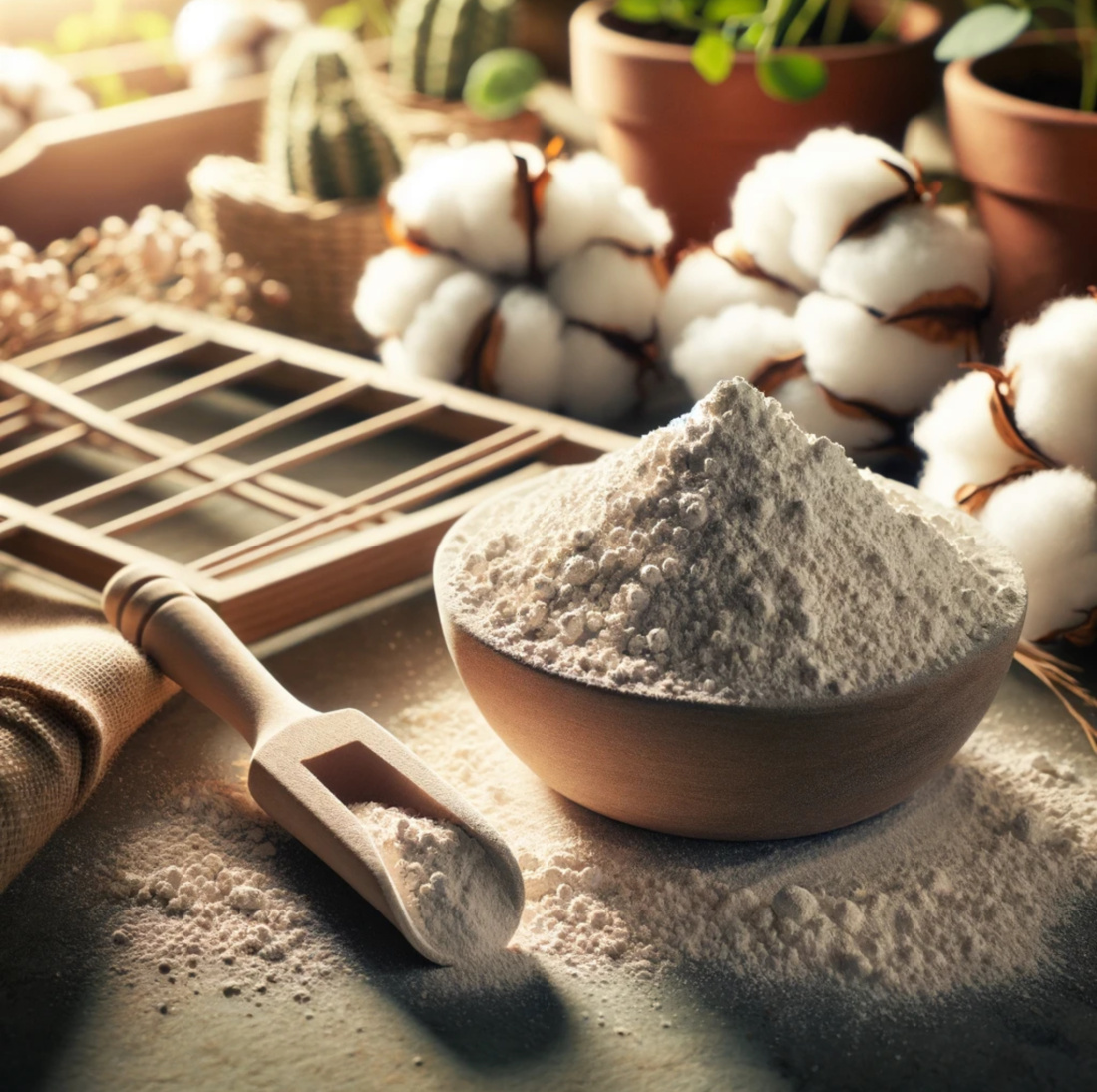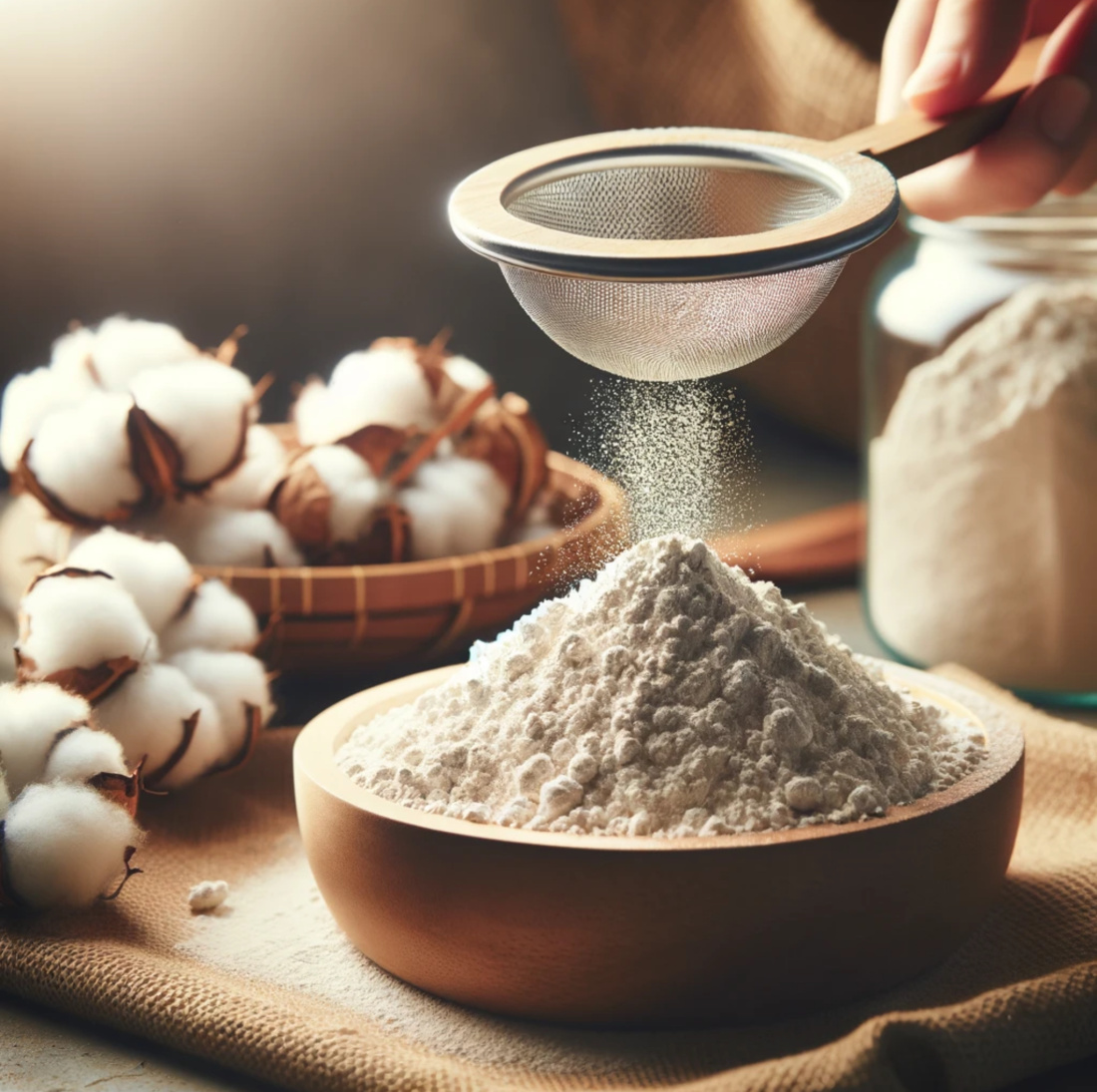
Cottonseed Meal Introduction
Cottonseed meal, a byproduct of the cotton manufacturing process, is repurposed as a valuable organic soil amendment, offering a sustainable way to enrich garden soil.
High in nitrogen and also containing phosphorus and potassium, cottonseed meal serves as a slow-release fertilizer that nurtures plant growth over time.
This guide will explore the benefits of cottonseed meal for your garden, including its nutritional profile, application methods, compatibility with various plants and soil types, and its contribution to environmentally friendly gardening practices.
Typical NPK Value: 6-2-1

Cottonseed Meal Key Benefits
Integrating cottonseed meal into your garden soil offers a range of advantages:
- Slow-Release Nitrogen: Provides plants with a steady supply of nitrogen, essential for leafy growth and vibrant green foliage.
- Soil Acidity Adjustment: Slightly acidic in nature, cottonseed meal can help lower the pH of alkaline soils, making it ideal for acid-loving plants.
- Improved Soil Health: Enhances soil structure and promotes the activity of beneficial microorganisms, contributing to overall soil fertility.
- Organic Nutrient Source: As an organic amendment, cottonseed meal adds essential nutrients without resorting to synthetic fertilizers.

Cottonseed Meal Nutritional Profile
Cottonseed meal typically contains about 6-7% nitrogen, 1-3% phosphorus, and 1-2% potassium, making it a balanced source of primary nutrients.
Its organic matter also enriches the soil, improving moisture retention and nutrient availability.
The gradual breakdown of nutrients ensures a long-lasting effect, supporting plant growth throughout the season.

How to Use Cottonseed Meal
Applying cottonseed meal to your garden is straightforward:
- For Garden Beds: Apply cottonseed meal at a rate of 4-6 pounds per 100 square feet, working it into the top few inches of soil before planting.
- For Established Plants: Side-dress plants with cottonseed meal by spreading it around the base of the plants and lightly incorporating it into the soil. This is best done in early spring and again in mid-summer.
- For Acid-Loving Plants: Cottonseed meal is particularly beneficial for plants like azaleas, rhododendrons, and blueberries. Apply around the base of these plants to help maintain the acidic soil conditions they thrive in.

Ideal Plants and Soil Types
Cottonseed meal is versatile and particularly beneficial for acid-loving plants and those requiring a steady, slow-release source of nitrogen.
It works well in vegetable gardens, flower beds, and around shrubs and trees.
While suitable for all soil types, its acidic nature makes it especially useful in neutral to alkaline soils that need a pH adjustment.

Sustainability and Environmental Impact
Using cottonseed meal as a soil amendment aligns with sustainable gardening practices. It recycles a byproduct of the cotton industry, reducing waste and providing an eco-friendly alternative to synthetic fertilizers.
Its slow-release properties minimize nutrient runoff, protecting water quality and promoting a healthier garden ecosystem.

Cottonseed Meal Tips and Tricks
To maximize the effectiveness of cottonseed meal in your garden, consider the following tips:
- Monitor Soil pH: If your garden hosts a mix of acid-loving and neutral pH preference plants, use cottonseed meal judiciously to avoid excessively lowering the soil pH for neutral pH plants.
- Combine with Compost: Mixing cottonseed meal with compost can enhance its nutrient profile and improve soil structure, providing a more comprehensive soil amendment solution.
- Store Properly: Keep unused cottonseed meal in a dry, sealed container to prevent it from attracting pests or becoming moldy.

Cottonseed Meal Conclusion
Cottonseed meal offers gardeners an organic, effective way to nourish their plants and improve soil health.
By incorporating cottonseed meal into your gardening routine, you can enjoy lush plant growth, vibrant blooms, and a more sustainable garden environment.
We encourage you to visit our shop and try cottonseed meal in your garden and share your experiences, contributing to a community of gardeners committed to organic and environmentally conscious practices.
Together, we can cultivate gardens that flourish naturally and sustainably.


